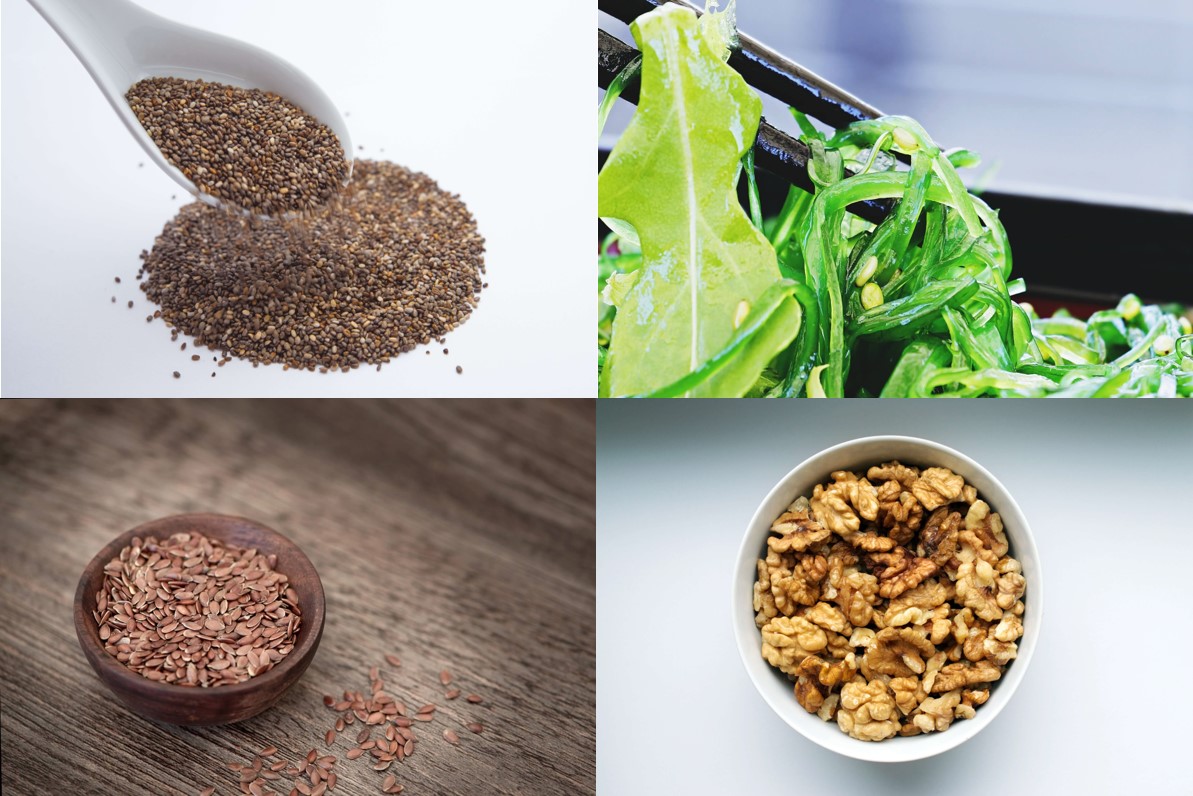Do vegans get enough Omega 3 fatty acids?
Are vegans healthy? Where do they get iron? omega 3? vitamin B12? vitamin D? protein? and so on. These are some of the many questions people wonder all the time. Have you?
There is a lot of misinformation out there. I felt the need to discuss all these questions in this blog and I hope they clarify any doubts you may have.
Let's start with Omega 3.
What are Omega 3 fatty acids?
Omega 3 polyunsaturated fatty acids (PUFAs) are the type of fat that you don’t want to cut back on since they are essential for human nutrition. PUFAs can be divided into:
- Long-chain: eicosapentaenoic acid (EPA), docosahexaenoic acid (DHA) and stearidonic acid (SDA).
- Short-chain: α-linolenic acid (ALA). ALA is the precursor of the long-chain omega 3 fatty acids.
EPA and DHA are found primarily in fish and algae, and ALA is found in plant sources, such as nuts and seeds.1 Actually, fish obtain Omega 3 EPA and DHA directly from algae.
Why are Omega 3 fatty acids important?
Omega 3 fatty acids play a role in the nervous system, blood pressure, glucose tolerance, inflammatory processes, brain and eye development, and cellular function.2, 3
These fatty acids have been associated with fetal development and cardiovascular function. They have also shown promising results in weight management and the prevention of cognitive function in patients with mild Alzheimer's disease.4

What is the daily recommended dose for Omega 3?
The recommended dose is 250-500 mg EPA/DHA per day.5
It is important to note that our body can only absorb EPA and DHA. However, vegetarians and vegans do not need to panic since we can convert ALA to EPA and DHA with a variable conversion rate (8-20% and 0.5-9%, respectively).6
For example, 1 tbsp of flaxseeds contains 2,430 mg ALA. If we take 2 tbsp and assume the low conversion rate of 8%, we will get already 388,8 mg of EPA and DHA.7
Subscribe to our blog, get notified when we release a new post and receive a shopping list to heal your gut for free!
Foods with Omega 3
Vegans can obtain Omega 3 fatty acids form the following sources:
- Seaweed and nori. Contain DHA and EPA.8
- Chlorella and spirulina, which are microalgae containing EPA and DHA.1
- Walnuts: 2,574 mg ALA per tbsp.
- Flax seeds: 2,430 mg ALA per tbsp.
- Chia seeds: 1,900 mg ALA per tbsp.
- Hemp seeds: 190 mg ALA per tbsp.6
- Soybeans, edamame and tofu.9
As long as these foods are added daily into the diet, vegans do not need to worry about meeting their Omega 3 requirements.